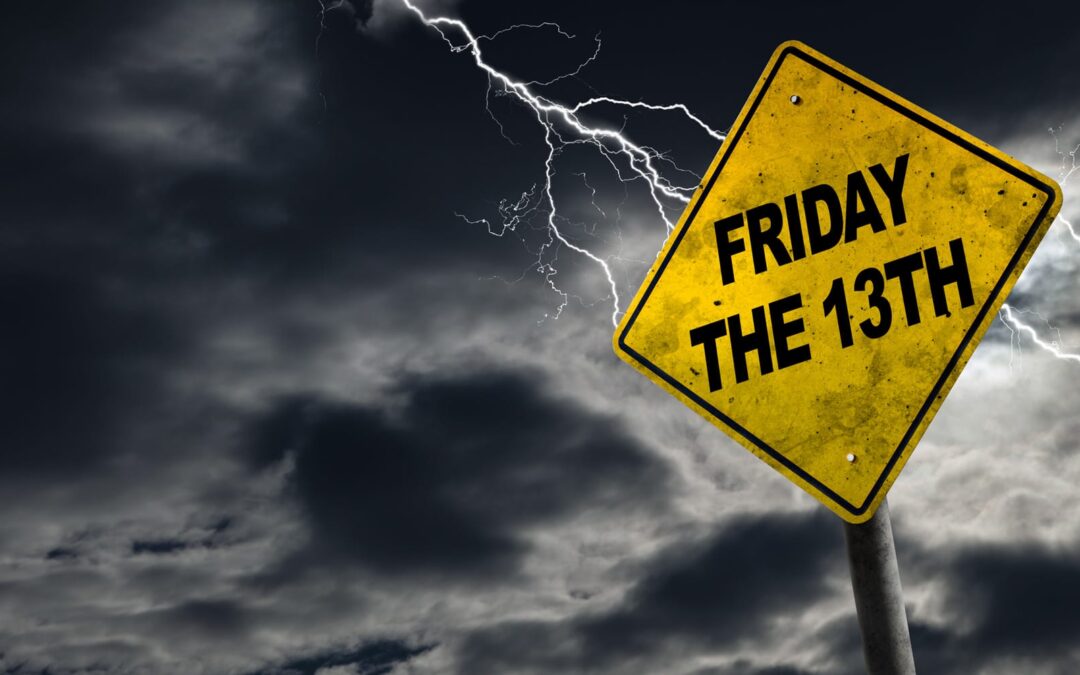Earlier this year, my young teenage daughter broke her foot and ended up in a walking cast. A performer in dance, vocal, and theater for many years, she was familiar with the phrase, “Break a leg!” but she didn’t really know where it came from. After two weeks of walking with her cast, she filled in the void of information with her own interpretation of the origin of the phrase. She informed me that she realized why people said “break a leg” in theater. She proceeded to tell me that if you “break a leg” then you will surely be put in the “cast” for the production. She thought it was hilarious that she had come up with an interpretation but it made me pause for a moment to think of all the superstitions we have in the public safety industry.
One of the big superstitions we have in public safety occurs during a full moon. More times than I can count we would brace each other up in the PSAP at the approach of a full moon. We were convinced that we had higher call volume, and more weird calls, on a full moon. But did we really? Multiple studies have been done on this claim and maintain that this is not real, but a perception. One belief for this is called confirmation bias – this is the idea that people favor information that supports their preconceived notions. In other words, if you expect people to act strangely during a full Moon, every strange behavior you encounter during a full Moon reinforces that belief.
Another superstitious belief is the effect of using the word “quiet”. Throughout public safety saying the word quiet as in “Wow, it’s so quiet today” seemingly brings the wrath of the world with calls for service abounding. While there is no evidence that this is an actual consequence of saying that word, I have used it and watched the craziness begin. Researching this, I learned that the quiet effect is technically based on our cognitive biases, that is, somehow when we murmur that word we will jinx the agency as well as the agencies we serve with a profound break in the calmness of the moment. There are factors that add to this, while we are talking about the cognitive biases, we must recognize the confirmation bias. This is when the word is spoken and the fertilization hits the oscillating equipment.
Our tendency is to only notice that which supplies evidence to support our belief. Quiet or similar words may be spoken every single day and 3 out of 7 days result in the explosion of ringing phones and radio traffic. View this unsubstantiated belief to be similar to the myth of talking about a no hitter baseball game in the 6th or 7th inning. When a pitcher has made it that far in a no hitter game, the superstition is that once the words are said, someone will get a hit. Truthfully there have been 299 no-hitters since 1876. To understand the magnitude of that, there are currently 2430 games in the regular season with most teams averaging 8 or 9 hits per game.
Those are fun myths to explore, but for a moment, with my extreme support for public safety, I want to touch on two more myths. While we all know in today’s changing environment that law enforcement is indeed dangerous, is it the MOST dangerous? Career Profiles researched this and noted that according to the US Bureau of Labor Statistics, loggers and farmers have a higher risk of being killed while working than those in law enforcement. In fact, police work comes in as the 14th on the list as the most dangerous occupations. Police officers face violence, guns, and force each day, and hopefully they are continually provided on-going training to protect themselves in this vital service. Yet even with the increased threat they face, law enforcement is considered safer than it was several decades ago.
What about the dread that comes for some with the retirement myth? In public safety we hear about those individuals who retire and pass-away within 6 months. It’s followed by statements such as, “The lack of stress was more than his/her body could handle” or “The stress finally caught up to him/her”. The actual statistic is much more uplifting. The average age for law enforcement officials to retire is 55.
Men live an average of 24 more years and women live an average of 29 years after retirement. Why do I point out these last two myths? I do so because public safety is a tough career choice, but the myths surrounding it can cause people to give up their dreams of serving their community by putting on the badge that then reduces the shrinking applicant pool. The myths can also trigger emotional responses from professionals who, after hearing the myths repeated, may begin to view themselves as a victim instead of the heroes they truly are.
Going back to the phrase “break a leg” in my research I discovered that this superstitious phrase is thought to have originated in the theater because it was bad luck to say to the performers, “good luck” so wishing them bad luck by breaking their leg, would give them good luck instead. What kind of logic is THAT?! But wait, there’s more – the phrase is thought to date back to the early 20th century (which began in 1901) to encourage performers on opening night.
According to the Readers Digest in August 2021, Some believe it was adapted from the German saying “Hals-und Beinbruch,” which means “neck and leg break.” That phrase may also be derived from the Hebrew blessing “hatzlakha u-brakha,” which means “success and blessing.” Nowhere are there any interpretations that believe it was so you could be cast in the production! But as for me, I’m sticking with my daughter’s fun accounting of the phrase.


Recent Comments